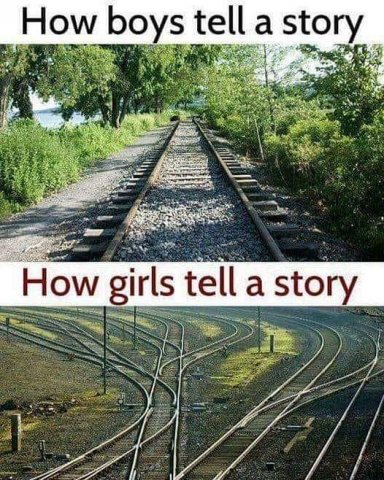I've never claimed to be a prophet (those guys are supposed to get it all right), but every once in a while I surprise myself. Looking back through old posts, I found this, which I had posted on January 1, 2020:
Permalink | Read 1233 times | Comments (0)
Category Hurricanes and Such: [first] [previous] [next] [newest] Inspiration: [first] [previous] [next] [newest]
Being a Floridian, and one who has enjoyed several cruises, I was naturally intrigued by the following Viva Frei episode in which attorneys David Freiheit and Robert Barnes discuss Florida's lawsuit against the CDC's shutdown of the cruise industry. The video is just under 14 minutes long.
As I said, the story was of mild interest to me from the beginning. It was already on my "blog about this, maybe" list. However, it turns out to have a personal angle that makes it even more compelling. Unfortunately, I can't talk about it for privacy reasons, but it serves as a clear though pleasant reminder that no matter how nameless and faceless the machinations of government and business seem, there are real, everyday people behind them all. We forget that to our peril.
Last Sunday, Viva & Barnes revisited the story, reporting that the judge, instead of ruling on the case, sent both parties to mediation. (The relevant part of the video is 26:18 - 28:29.)
Here is another example of what a difference "spin" makes in news reporting. Barnes clearly sees the mediation order as an indication that the judge would rule in favor of Florida if he had to, and as a way for the him to let the CDC save face while keeping himself from being accused of "killing granny." However, most news articles I read have reported it as a setback for Governor DeSantis, and pointedly place the blame for cruise ships fleeing Florida, not on the CDC's restrictions, but on both DeSantis and the Florida Legislature for forbidding discrimination against people who have not been vaccinated.
I certainly hope that Barnes is right, and more accurate in his analysis of the judge's inclinations than he was of the judge's gender—though these days I'll admit the latter is a trickier call than it ought to be.
Part 1 is here. Now for more of our adventures during our December attempt at choosing joy and life amidst a pandemic-inspired focus on fear and death.
The eight of us did most of our venturing-outside-the-home together (being blessed with a car that seats that exact number), but occasionally we split up, as when two of us spent a day at EPCOT and the rest of us sought our entertainment at a classic American mini-golf course. Both groups had great fun. Credit goes to Disney for keeping their parks open and at the same time uncrowded so that the experience felt safe as well as fun. Remember that back then we knew much less about outdoor transmission (or lack thereof) of the virus, and people were nearly as scared outdoors as inside. The golf course was similarly comfortable.


Left: Congo River Golf; Right: EPCOT at night. Click to enlarge.
We also separated to give Janet and Stephan a chance to celebrate their anniversary on their own. They chose a hotel on Daytona Beach, and we joined them the next day for the chance to swim in the Atlantic Ocean on the first day of winter. Porter and I declined the swim, as it was 66 degrees, cloudy, and windy. That didn't stop the hardy Swiss, however! I didn't realize until we arrived that they had chosen a hotel on the same section of beach where I spent so many happy hours as a child—a five-minute walk from my grandparents' house. The coquina-built bandshell is much the same, and so is the ocean, but almost nothing else.
Closer to home, we visited the Orange County History Center, which thoughtfully made it possible to see the good stuff while avoiding the decidedly-child-inappropriate special exhibit of history's darker side. We picked out and decorated our Christmas tree, made cookies, and generally prepared for the holiday, which is not surprisingly much more fun with children around. We visited playgrounds, worked on various projects at home, swam some more, and sang and played music together.
Only twice in our entire month together did I feel the least bit uncomfortable with regard to COVID-19. The worst was at our local pizza party arcade, since we arrived at a time when a large party of people without masks crowded the place. Fortunately it was easy to return later.
The second time was at Sea World. I mean no particular criticism of the park, which clearly took precautions very seriously: taking temperatures, requiring masks, keeping even the outdoor stadiums at low, well-distanced capacity. But overall the park was more crowded than allowed for comfortable distancing, unlike our experience at EPCOT. However, this was on December 23, one of the busiest days of the year, one we'd normally have avoided like the plague. (Perhaps that analogy isn't the best one to use at this time.) The experience was overall delightful and certainly much more pleasant than it would have been in a normal year.
More to come.
Permalink | Read 1535 times | Comments (1)
Category Hurricanes and Such: [first] [previous] [next] [newest] Health: [first] [previous] [next] [newest] Politics: [first] [previous] [next] [newest] Children & Family Issues: [first] [previous] [next] [newest] Everyday Life: [first] [previous] [next] [newest]
What are you saying NO to today, so you can say YES to something better?
(S. D. Smith, author of the Green Ember series.)
Permalink | Read 1095 times | Comments (0)
Category Inspiration: [first] [previous] [next] [newest]
According to this article,
During an interview on CNN's "State of the Union," [CDC director Rochelle] Walensky was asked about vaccinated Americans who have contracted the virus—and whether anyone has died from an infection, despite being inoculated. Walensky said the CDC is aware of 223 so-called "break-through" infections in vaccinated Americans, but clarified that many of those individuals died due to other causes. "Not all of those 223 cases who had COVID actually died of COVID," she said. "They may have had mild disease but died, for example, of a heart attack."
This makes perfect sense to me. From the beginning of this pandemic, I have been frustrated by seeing a clear tendency to report all deaths in anyway associated with COVID-19 as caused by the virus. Witness the testimony of a friend of ours, a nurse, who (in another state) was ordered to count as new, active COVID-19 cases anyone who tested positive for the COVID-19 antibodies—which meant that many cases were counted multiple times. And that of an Emergency Medical Technician I know who only partially joked, "If someone with COVID-19 is run over by a truck, his death is counted as a COVID-19 death." Then there's the death I know about that was put down as due to COVID-19 but should have been "nursing home neglect." Of course these are isolated examples, but good luck trying to convince me that they aren't representative of widespread mis-information.
What it comes down to is this: What are you trying to prove?
When the powers-that-be were trying to justify elaborate and invasive regulations in reaction to the pandemic, it was to their advantage that the numbers be as large as possible. But when the object is to reassure the public of the safety and effectiveness of the vaccine, the advantage lies in giving the virus no more blame than is absolutely undeniable.
I happen to believe that the CDC is closer to the truth in the case of the vaccine, but that's not the point. What's important is that with every report, every news story, every rumor,
Always, always, always ask, Cui bono?
Who benefits? What are they trying to prove? Follow the money.
This is the post I started to write five months ago, but postponed to make sure everyone involved got through their quarantines and other impedimenta successfully.
I like to think that we've been more careful than most during this pandemic, though more due to the concern of our children (who apparently think we are "old") than our own. But when you're retired, and introverted, and not easily bored, staying home is a pretty easy option. We wore masks before our county made them mandatory, shopped only for what we deemed necessities, and used the stores' "senior hours" when we could. I'm also the only person I know who consistently washed (or quarantined) whatever we brought home.
But all that isolation, particularly the lack of physical touch, is hard even on introverts.
Hardest of all was cancelling our big family reunion scheduled for April 2020—coinciding with what was supposed to be the first visit home in six years of our Swiss family. Following close behind were missing our nephew's wedding, our normal summertime visit to the Northeast, and our long tradition of a huge family-and-friends Thanksgiving week of feasting and fun, all of which would have involved being with most of our American-based family. Plus the breaking my fourteen-year streak of travelling overseas to visit our expat daughter and her family (one year to Japan, thirteen to Switzerland).`
I know that doesn't begin to compare with the hardship endured by those who were forceably separated from loved ones who were sick or dying. But when the "temporary measures to keep our hospitals from being overwhelmed" turned into unending months of restrictions—with our hospitals so far from overcrowded as to be financially strapped due to underutilization—even normally compliant people like us began to chafe.
Even as we relaxed and let go of much of our fear, we remained vigilant in our precautions, for a very good reason: a light, not at the end of the tunnel, but a much-needed illumination in the middle of the tunnel. We needed to stay healthy, because...
The reunion remained off the table, due to onerous quarantine requirements imposed by the states the rest of our family live in. But thanks to much work on their part, and a state government more enlightened than most, our European family was able to visit us in December. Rarely have I been so happy to be living in Florida, which welcomed them with open arms. So of course did we! Mind you, I think the CDC was still recommending we wear masks all the time with visitors and stay six feet apart, but naturally that didn't last six seconds! A year apart from family is far too long, and that goes tenfold for grandchildren. Sometimes you just do what you have to do.
We did the risk/benefit analysis—and made the joyful choice.
Porter had to drive to Miami to pick them up, because so many flights had been cancelled. But he would have driven farther than that to bring them home!
We had been prepared to stay mostly around the house, just enjoying each other's presence. And at first we did a lot of that, since merely being in America was adventure enough for the grandkids. But they were here for a month, and most of the tourist attractions had reopened, albeit at reduced capacity, so we took full advantage.
Kennedy Space Center was amazing. We were not the only visitors in the park, but at times it seemed like it. Sadly, some of the attractions were still COVID-closed, but there was certainly plenty to see. The following photo is for the lefties in our family:
One of the trips I enjoyed the most was to Blue Spring State Park, which was visited by more manatees than we've ever seen naturally in one place. The weather was perfect—that is, cold. Cold weather drives the manatees from the ocean and the rivers into the relatively warm water (about 72 degrees) of the springs. The air temperature made most of us keep our masks on even though that was not required except inside the buildings, since we discovered them to be very effective nose-warmers.
Another favorite activity was swimming. (Not with the manatees; that's no longer allowed.) The intent was for most of it to be in our own pool, and indeed it was, but there had been a glitch: We purchased a pool heater, knowing that our pool temperatures in December can dip into the 50's (Fahrenheit). However, the unit that was supposed to have been installed before our guests arrived was delayed again and again. Whether it was actually the fault of the pandemic is anyone's guess, but that's what took the blame. It finally arrived just a few days before they had to return to Switzerland. Until then, the children swam bravely, if not at length, in the cold water, and all of us enjoyed the (somewhat) heated pool at our local recreation center. And then they really appreciated our own heated pool for those last few days.
To be continued....
Permalink | Read 1474 times | Comments (1)
Category Hurricanes and Such: [first] [previous] [next] [newest] Health: [first] [previous] [next] [newest] Politics: [first] [previous] [next] [newest] Children & Family Issues: [first] [previous] [next] [newest] Everyday Life: [first] [previous] [next] [newest]
This may explain a few marital frustrations. (Credit to someone on Facebook but I can't find it again to share it.)
Permalink | Read 1379 times | Comments (3)
Category Just for Fun: [first] [previous] [next] [newest]

 The Wild Robot and The Wild Robot Escapes by Peter Brown (Little, Brown 2016, 2018)
The Wild Robot and The Wild Robot Escapes by Peter Brown (Little, Brown 2016, 2018)
When everyone in the house (adult, 17, 14, 12, 10, 8, and 6) approves of a book, I generally find it worth looking into, despite my well-ingrained—and more often than not justified—prejudice against recently-written children's books. Peter Brown's Wild Robot books were definitely worth the reading.
Brown's story of a robot cast away on an uninhabited (by humans) island and how its programming directs its adjustment there, and in later adventures, is very well done, reminding me of Isaac Aimov's treatment of the practical and ethical issues of a society that includes multitudes of robotic machines.
There's love and conflict and tragedy and emotional struggles, all handled sensitively. I can't say I like these books better than S. D. Smith's Green Ember series, which my readers know I love greatly, but they are less dark—and less violent, despite some scary adventures. I detected no warning bells for my very sensitive grandchildren on the other side of the family. They may especially enjoy that the main character is female (if one can say that about a robot) who is strong and smart, gentle and motherly.
Sure, I could make some complaints, but they're minor and overshadowed by the good.
So ... Canada is now saying, "It's not as bad here as in North Korea, or Nazi Germany." And we can say, "It's not as bad here as in Canada." Not exactly progress, is it?
As a mathematician I can say it is, actually—with a minus sign.
That was from May 7. Today we have this.
This is not sensationalism and fearmongering. Viva Frei is careful to see many sides of an issue. So am I, and I fully acknowledge that not everyone sees the same line separating civil disobedience from selfish thuggery.
Following the rules is necessary for a functional civilization.
Blindly following the rules is necessary for a functional tyranny.
Respecting one another is necessary for a functional humanity.
I'm going to leave it at that for now.
I really don't like the way Mother's Day has been altered, morphing from a joyous celebration of and respect for our own mothers, to honoring all women who happen to be mothers, to making the day downright depressing by including everyone under the sun and telling many sad stories in the process. At every step the day seems to have become less meaningful and more selfish.
But in this world there are still plenty of sorrows associated with motherhood, and that suffering needs to be remembered. This was brought home again to me when I read this in The Wild Robot, by Peter Brown.
Do you know what the most terrible sound in the world is? It's the howl of a mother bear as she watches her cub tumble off a cliff.
This post is for every mother who has lost a child: at any age; at any stage of life; suddenly or through prolonged suffering; by accident, injury, illness, stillbirth, miscarriage, or abortion; and also for those who have lost even the hope and dream of children.
Even more so, this post is for mothers (and fathers) who have heard the howls of their own children who have suffered these losses.
Sunday is for celebrating what we have. Today we can pause to think about what we—or more importantly, others—have not.
Permalink | Read 1270 times | Comments (1)
Category Children & Family Issues: [first] [previous] [next] [newest]
 A Child's History of England by Charles Dickens (public domain, 1851-1853)
A Child's History of England by Charles Dickens (public domain, 1851-1853)
Dickens' book is, unsurprisingly, in the public domain. I read the free Kindle version and it was fine, though it might be worth springing for another $2 and getting the original illustrations as well.
A Child's History of England is a maddening book, yet a valuable one. According to its Wikipedia article, it "was included in the curricula of British schoolchildren well into the 20th century." It never could be now—which may be an indication that it should be. It is one man's very biased view of English history, hence valuable to balance other biases.
What's good about it? Well, I appreciated the organized layout of English history from ancient times up to the reign of William and Mary, with a very quick summary thence to Queen Victoria. Bit by bit, through several sources, I am gaining knowledge of the history of the lands that were home to many of my ancestors and played a significant part in the development of Western Civilization. The book, being designed for intelligent children, is both readable enough and interesting enough to read much more like a story than a textbook.
What didn't I like? To begin with, it is obviously and admittedly a propaganda piece. Dickens himself said of his book,
I am writing a little history of England for my boy ... For I don't know what I should do, if he were to get hold of any conservative or High Church notions; and the best way of guarding against any such horrible result is, I take it, to wring the parrots' neck in his very cradle.
Dickens does not appear to have liked England very much. He praises the Saxons, and holds Alfred the Great in very high esteem. Henry V wasn't too bad, and Oliver Cromwell gets too much credit for not being as horrible as the kings that preceded and followed him. Other than that, Dickens doesn't seem to have much respect for any of the British monarchs and their hangers-on. He also passionately hates the Catholic Church, and much of the undivided Church itself before the Reformation. The Puritans are heaped with scorn as well. He clearly claims to be a Christian, just as he claims to be an Englishman, but doesn't seem to care much for either Christianity or England. Sometimes the book feels less like a history and more like a series of ad hominem attacks. He even manages to draw a caricature of Joan of Arc as a mentally deficient peasant girl abused for others' gain.
Part and parcel of his prejudice, I believe, his his annoying habit of inconsistently referring to people sometimes by name, sometimes by title, often by nickname, and even by insult. I found this to make keeping the characters straight difficult, and I tired of flipping back several pages to try to figure out which particular duke was currently meant. It certainly doesn't help me to remember that he's talking about King James I when most of the time Dickens refers to him as "His Sowship."
For all that, I do recommend reading A Child's History of England, though only in the context of competing viewpoints. It does a good job of helping to put together the pieces of the complex puzzle that is the story of England.
"Who Is in Control? The Need to Rein in Big Tech," from this past January's Imprimis magazine, deserves mention here. It's not one I would normally republish, not because I don't agree with it, but because the author is the senior technology correspondent for Breitbart News. He has the credentials to be heard, but Breitbart's biases make me as wary as CNN's do, and I know many of my left-leaning readers would see that and stop reading.
Don't. Please don't. What he has to say about the uncontrolled power of Google, Facebook, Twitter, YouTube, Amazon, and the like should concern everyone. Right now, it's conservatives who are feeling the flex of Big Tech's muscles, but the tech leaders could easily turn around and bite the hands that are currently feeding them. If you believe in freedom and democracy at all, this is worth reading and pondering.
Like most Europeans, my son-in-law, who is Swiss as well as American, has always wondered why I am so afraid of the misuse of governmental power, and not concerned about Google. I, in turn, don't understand how he can be so worried about tech companies while having no problem with a level of government surveillance and interference that would shock most Americans. I still think he's wrong not to be worried about excessive power in governmental hands, but I have to admit that he's right about Big Tech.
My response used to be, "Who cares if Google uses my data to target ads? I just ignore them, as I've always done with ads in newspapers (I usually don't even notice them) and on television." But that was then. That was before Facebook took down my 9/11 memorial post because it included a photo of Saddam Hussein. That was before it became obvious that Facebook was troubled by posts that even hinted that they might be about COVID-19. (Click image to enlarge.)
That was before I noticed how much Facebook and YouTube censor viewpoints they don't like. How careful one must be not to run afoul of their "algorithms." And certainly before Facebook, Twitter, Google, and Amazon proved that they are powerful enough to shut down the president of the United States, as well as a service (Parler) that welcomed Donald Trump's participation.
This may look as if it's about politics. It's not. It's about power. And it threatens everyone on every part of the political spectrum.
In January, when every major Silicon Valley tech company permanently banned the President of the United States from its platform, there was a backlash around the world. One after another, government and party leaders—many of them ideologically opposed to the policies of President Trump—raised their voices against the power and arrogance of the American tech giants. These included the President of Mexico, the Chancellor of Germany, the government of Poland, ministers in the French and Australian governments, the neoliberal center-right bloc in the European Parliament, the national populist bloc in the European Parliament, the leader of the Russian opposition ... and the Russian government.
Common threats create strange bedfellows. Socialists, conservatives, nationalists, neoliberals, autocrats, and anti-autocrats may not agree on much, but they all recognize that the tech giants have accumulated far too much power. None like the idea that a pack of American hipsters in Silicon Valley can, at any moment, cut off their digital lines of communication.
It is important to remember that the Web, as we know it today—a network of websites accessed through browsers—was not the first online service ever created. In the 1990s, Sir Timothy Berners-Lee invented the technology that underpins websites and web browsers, creating the Web as we know it today. But there were other online services, some of which predated Berners-Lee’s invention. Corporations like CompuServe and Prodigy ran their own online networks in the 1990s—networks that were separate from the Web and had access points that were different from web browsers. These privately-owned networks were open to the public, but CompuServe and Prodigy owned every bit of information on them and could kick people off their networks for any reason.
...[T]he Web was different. No one owned it, owned the information on it, or could kick anyone off. That was the idea, at least, before the Web was captured by a handful of corporations.
We all know their names: Google, Facebook, Twitter, YouTube, Amazon. Like Prodigy and CompuServe back in the ’90s, they own everything on their platforms, and they have the police power over what can be said and who can participate. But it matters a lot more today than it did in the ’90s. Back then, very few people used online services. Today everyone uses them—it is practically impossible not to use them. Businesses depend on them. News publishers depend on them. Politicians and political activists depend on them. And crucially, citizens depend on them for information.
Ah, the early days. We were early Prodigy users, and GEnie, before the Internet took off. Those were the days when it was easy to interact with famous people, because it was all so new and the numbers were small. GEnie's Education RoundTable was a great resource in our early days of homeschooling, and there I met Bobbi Pournelle, wife of science fiction writer Jerry Pournelle. We even arranged to meet when she came to Orlando, as did other of my ERT acquaintances. That was before we were warned against having meet-ups with people we only knew online, and it was a good deal of fun.
Big Tech has become the most powerful election-influencing machine in American history. It is not an exaggeration to say that if the technologies of Silicon Valley are allowed to develop to their fullest extent, without any oversight or checks and balances, then we will never have another free and fair election. But the power of Big Tech goes beyond the manipulation of political behavior. As one of my Facebook sources told me ... “We have thousands of people on the platform who have gone from far right to center in the past year, so we can build a model from those people and try to make everyone else on the right follow the same path.” Let that sink in. They don’t just want to control information or even voting behavior—they want to manipulate people’s worldview.
Consider “quality ratings.” Every Big Tech platform has some version of this, though some of them use different names. The quality rating is what determines what appears at the top of your search results, or your Twitter or Facebook feed, etc. It’s a numerical value based on what Big Tech’s algorithms determine in terms of “quality.” In the past, this score was determined by criteria that were somewhat objective: if a website or post contained viruses, malware, spam, or copyrighted material, that would negatively impact its quality score. If a video or post was gaining in popularity, the quality score would increase. Fair enough. Over the past several years, however—and one can trace the beginning of the change to Donald Trump’s victory in 2016—Big Tech has introduced all sorts of new criteria into the mix that determines quality scores. Today, the algorithms on Google and Facebook have been trained to detect “hate speech,” “misinformation,” and “authoritative” (as opposed to “non-authoritative”) sources. Algorithms analyze a user’s network, so that whatever users follow on social media—e.g., “non-authoritative” news outlets—affects the user’s quality score. Algorithms also detect the use of language frowned on by Big Tech—e.g.,“illegal immigrant” (bad) in place of “undocumented immigrant” (good)—and adjust quality scores accordingly. And so on.This is not to say that you are informed of this or that you can look up your quality score. All of this happens invisibly. It is Silicon Valley’s version of the social credit system overseen by the Chinese Communist Party. As in China, if you defy the values of the ruling elite or challenge narratives that the elite labels “authoritative,” your score will be reduced and your voice suppressed. And it will happen silently, without your knowledge.
If Big Tech’s capabilities are allowed to develop unchecked and unregulated, these companies will eventually have the power not only to suppress existing political movements, but to anticipate and prevent the emergence of new ones. This would mean the end of democracy as we know it, because it would place us forever under the thumb of an unaccountable oligarchy.
The author does have a suggestion, and I think it sounds reasonable. (I know my audience will not hesitate to let me know if I've missed something.) Some may think that I am against government regulation, but that's not true. I'm against unreasonable government regulation. (For my purposes, I get to define "unreasonable.") Most especially I am against regulations that fail to distinguish between large entities (in business, agriculture, education, medicine, and the like) and the small and individual. I don't know how to quantify "large enough" to need special regulation, but I have no doubt that our tech giants have crossed that line.
All of Big Tech’s power comes from their content filters—the filters on “hate speech,” the filters on “misinformation,” the filters that distinguish “authoritative” from “non-authoritative” sources, etc. Right now these filters are switched on by default. We as individuals can’t turn them off. But it doesn’t have to be that way. The most important demand we can make of lawmakers and regulators is that Big Tech be forbidden from activating these filters without our knowledge and consent. They should be prohibited from doing this—and even from nudging us to turn on a filter—under penalty of losing their Section 230 immunity as publishers of third party content. This policy should be strictly enforced, and it should extend even to seemingly nonpolitical filters like relevance and popularity. Anything less opens the door to manipulation.
I cannot say it strongly enough: This is not a left-wing thing; this is not a right-wing thing. This is a big thing. A thing we must all come to grips with.












